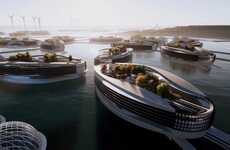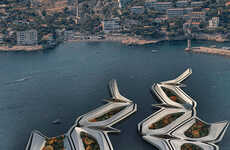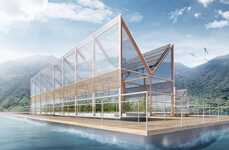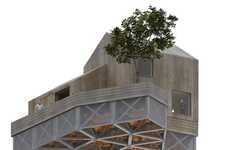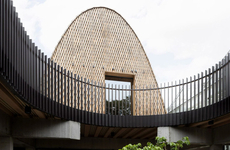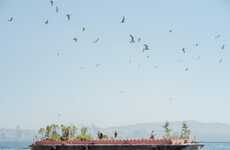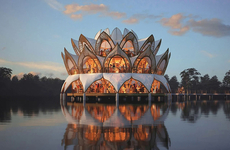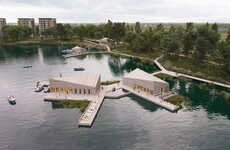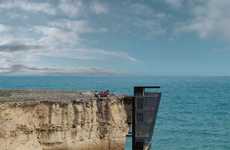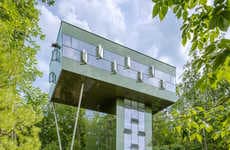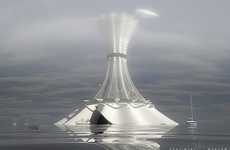
Noah's Ark by Aleksandar Joksimovic & Jelena Nikolic is Biblical
Meghan Young — March 17, 2014 — Eco
References: evolo.us & mymodernmet
The theatrical release of the movie 'Noah' fast approaching is sure to garner Noah's Ark by Aleksandar Joksimovic and Jelena Nikolic, architects hailing from Serbia, even more attention than it has already enjoyed. Inspired by the biblical story that involved a large boat to save plants and animals for a global flood, it is a self-sustaining floating city that is meant to fulfill a similar purpose.
Created for the annual Skyscraper Competition, Noah's Ark by Aleksandar Joksimovic and Jelena Nikolic look like the rice terrace fields found in Philippines and China. According to Inhabitat, "Their innovative water world would support life on terraced fields, grow food, collect rainwater, generate its own power and is engineered to withstand all forms of water-based disasters."
Created for the annual Skyscraper Competition, Noah's Ark by Aleksandar Joksimovic and Jelena Nikolic look like the rice terrace fields found in Philippines and China. According to Inhabitat, "Their innovative water world would support life on terraced fields, grow food, collect rainwater, generate its own power and is engineered to withstand all forms of water-based disasters."
Trend Themes
1. Self-sustainable Floating Cities - The trend towards creating self-sustaining floating cities that can support life, grow food and generate their own power, providing an option for coping with water-based disasters.
2. Terraced Fields-based Floating Architecture - The trend towards creating floating architectural structures based on the design of terraced fields found in places like the Philippines and China, that can host self-sustaining communities and withstand water-based disasters.
3. Bio-diverse Floating Communities - The trend towards creating floating communities that can preserve bio-diversity and protect wildlife while providing housing and other infrastructure for self-sustaining communities.
Industry Implications
1. Architecture - Designing innovative floating architecture will present opportunities for architects to create sustainable living spaces that can withstand water-based disasters.
2. Urban Planning - Creating self-sustaining floating cities will require innovative urban planning, providing opportunities for urban planners to design sustainable and resilient communities.
3. Environmental Technology - Developing environmental technologies that can sustainably power self-sustaining floating cities and provide water and food security will present opportunities for businesses in this sector.
6.8
Score
Popularity
Activity
Freshness

